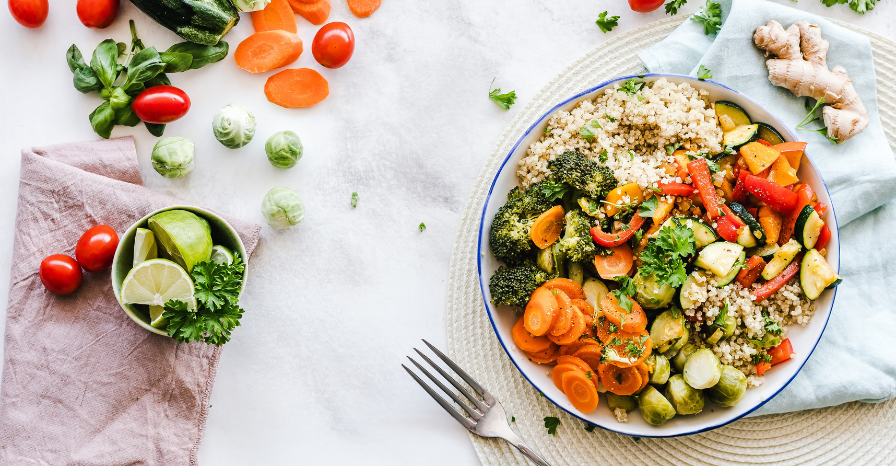
Essential vitamins and minerals for vegans
VEGAN ESSENTIALS |One common concern about a vegan diet is whether it provides your body with all the micronutrients it needs. Following a whole food, plant-centered vegan diet offers tremendous advantages, including reduced risk of heart disease, cancer, diabetes, obesity, and many other ailments. However, in today’s day and age, our topsoil is depleted and has lost much of its mineral content. Hence, making our fruits and veggies deficient in essential micronutrients like vitamin B12. Failure to recognise deficiencies in micronutrients can cause serious health consequences. For example, if you are a vegan supplementing with vitamin B12 is a must, as this vitamin is not present in plant-based food. Many of us also have less exposure to sun increasing our risk for vitamin D3 deficiency.
Choosing a vegan diet predominately plant-based, will help you reduce your risk of certain disease, but be mindful that certain vitamins will need to be supplemented with a vegan supplement.
Here is a list of essential micronutrients that a vegan plant-based diet is deficiency in:
1. Vitamin B12:
Vitamin B12 is often thought of as a mood-boosting supplement. Like the other B vitamins, it is crucial for many of your body’s processes. It is responsible for making new red blood cells, cell metabolism and DNA synthesis, as well as supporting brain function. This vitamin is naturally found in animal food sources such as meat and dairy products. Vegans can get B12 from eating by taking vitamin B12 in the form of a supplement – like our B12-veg capsules. Keep in mind that vitamin B12 is a water-soluble vitamin, which means that your body absorbs the amount it requires and any excess will pass through in your urine.
2. Vitamin D:
Known as the sunshine vitamin, vitamin D is important for many important functions, supporting the regulation of hormones, maintaining immune function, and supporting calcium absorption for bone health. Your body makes vitamin D from exposure to the sun; thus, vegans are not the only ones deficient in vitamin D3. If you are able to get sun exposure on a daily basis, this is the best way to get your daily dose of vitamin D. However, the likelihood of this is slim, you are most likely not getting the recommended amount of vitamin D. In this case, taking a vitamin D supplement is advised to fill your nutritional gaps in this micronutrient. Make sure you opt for a supplement that offers the active form of vitamin D3, which is cholecalciferol. Our Vegan D3 capsules are formulated with the only vegan vitamin D3 source.
3. Vitamin K:
Vitamin K is a fat-soluble vitamin, which is not synthesised by the body. This means you have to obtain it through your diet. Vitamin K also has two forms: vitamin K1 and vitamin K2. Vitamin K1 important for blood clotting and most of us get enough of vitamin K1, as it is present in leafy green vegetables like spinach and kale. However, vitamin 2 supports calcium utilisation and absorption and most vegans lack this because vitamin K2 is obtained through fermented foods like cheese or any other fermented dairy products. Unless you eat fermented Japanese natto beans, you will consume some vitamin K2. Otherwise, vitamin K2 is absent from a plant-based diet. Consider supplementing vitamin K2 like our K2-7-veg caps to ensure your daily required levels of this essential vitamin.
4. Omega-3 DHA:
The three primary omega-3 fatty acids are ALA (alpha-linolenic acid), EPA (eicosapentaenoic acid), and DHA (docosahexaenoic acid). All three are critical to human health. DHA, in particular, is a primary structural fat in the human brain and eyes, representing about 97% of all omega-3 fats in the brain and 93% of all omega-3 fats in the retina[1]. However, DHA is only present in certain fish like salmon; hence, a vegan plant-based diet is deficient in omega-3 DHA. Omega-3 ALA is found in flaxseeds, walnuts, and soy products, which are vegan-friendly. On the other hand, algae oil is the only vegan-friendly and primary source of DHA. As previously mentioned, omega-3 DHA is a major component of our brain and eyes, and may also contribute to heart health. For pure vegan omega-3 DHA supplement, you can check out our algae based Ovegha supplement.
5. Zinc:
Zinc, although not a vitamin, is an essential mineral that helps support a healthy immune system, enzyme activities, tissue synthesis and energy metabolism. While not all vegans have low blood zinc levels, a recent review of 26 studies showed that vegetarians and especially vegans have lower zinc intakes and slightly lower blood zinc levels than omnivores[2]. Not getting enough zinc daily can lead to hair loss, developmental problems and wound healing delay. Make sure you opt for whole grains, tofu, sprouted beans, nuts and seeds. Remember to soak your nuts and beans overnight to maximise zinc absorption. If you feel like your zinc intake is less, use a zinc supplement to fill in the gap.
The nutritional and health benefits that a vegan plant-based diet are incredible. Do keep in mind that although you may be eating a lot of fruits, veggies, legumes, whole grains, nuts and seeds, you may be lacking of some essential nutrients like vitamin B12, vitamin D, vitamin K and zinc. So, the key to achieving total-body health and longevity is to fill in the nutritional gaps with required with a vegan supplement.
References:
1.https://www.ncbi.nlm.nih.gov/pubmed/23595983
2. https://www.ncbi.nlm.nih.gov/pmc/articles/PMC2621042/
Image courtesy of Pexels

